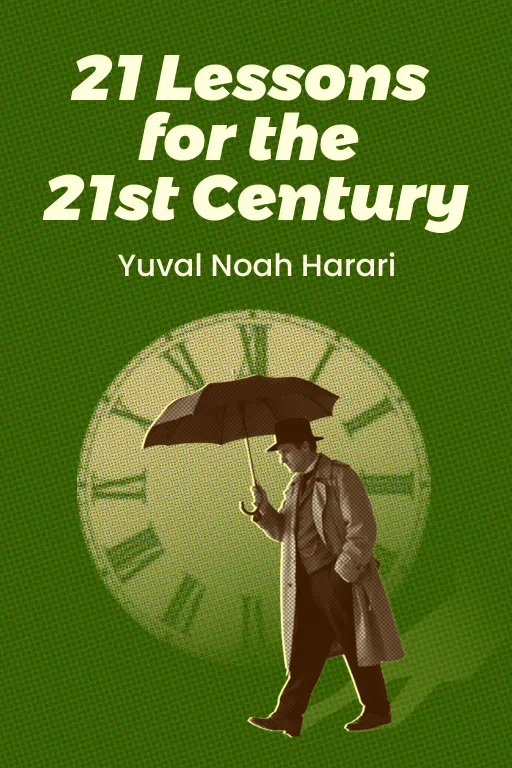
21 Lessons for the 21st Century
Society & Culture
Yuval Noah Harari
Summary of "21 Lessons for the 21st Century"
Yuval Noah Harari's "21 Lessons for the 21st Century" serves as an erudite and penetrating examination of the multifaceted crises confronting humanity in the contemporary epoch. Eschewing simplistic prognostication, Harari embarks on a profound exploration of the intricate interplay between technological advancements, political ideologies, and ethical imperatives, challenging readers to confront the complex realities shaping our collective destiny. The book is structured not as a prescriptive treatise but as a series of insightful essays, each illuminating critical dimensions of the present and future.
Harari begins by dissecting the prevailing sense of disillusionment that pervades modern societies, particularly concerning the erosion of grand narratives—those overarching ideologies that once provided cohesive frameworks for understanding the world. The ascendancy of liberalism, following the collapse of fascism and communism, was initially heralded as the apotheosis of human progress. However, the ensuing decades have witnessed a fragmentation of this narrative, marked by rising economic inequality, political polarization, and a pervasive sense of existential anxiety. This disillusionment is further exacerbated by the accelerating pace of technological change, particularly the advent of artificial intelligence and biotechnology, which pose fundamental challenges to traditional notions of labor, liberty, and equality.
The author astutely observes that the technological revolution, while offering unprecedented opportunities for human advancement, also presents profound ethical and societal dilemmas. He emphasizes the potential for the concentration of data ownership in the hands of a few powerful corporations to exacerbate existing inequalities and undermine individual autonomy. Furthermore, the rise of AI threatens to displace human workers from various sectors, creating a "useless class" of economically marginalized individuals. In response, Harari advocates for a comprehensive reevaluation of our educational systems, emphasizing the cultivation of critical thinking, creativity, and adaptability as essential skills for navigating an uncertain future.
Central to Harari's analysis is the resurgence of nationalism as a dominant political force, particularly amidst the growing need for global cooperation to address shared challenges such as climate change and pandemics. He cautions against the seductive allure of nationalist ideologies, which often prioritize parochial interests over collective well-being and can lead to exclusion, xenophobia, and even violent conflict. Instead, Harari argues for the cultivation of a more inclusive and cosmopolitan worldview, one that recognizes the shared humanity that transcends national borders.
The book also delves into the troubling phenomenon of "post-truth," characterized by the proliferation of misinformation, conspiracy theories, and the erosion of trust in established institutions. This phenomenon is fueled by technological advancements, particularly social media, which enable the rapid dissemination of false or misleading information. Harari underscores the importance of critical thinking and media literacy in combating the spread of misinformation and safeguarding the integrity of democratic discourse.
Acknowledging the profound challenges confronting humanity, Harari nevertheless maintains a cautious optimism, emphasizing the importance of resilience, humility, and the capacity for collective action. He argues that meditation can serve as a tool for self-awareness, fostering emotional regulation, and promoting a more grounded perspective. Furthermore, he advocates for secularism with a shared set of ethical principles centered around truth, equality and freedom to navigate the difficulties ahead.
In conclusion, "21 Lessons for the 21st Century" is a thought-provoking and intellectually stimulating exploration of the defining challenges and opportunities of our time. By synthesizing insights from history, philosophy, science, and current events, Harari offers a nuanced and insightful analysis of the complex realities shaping our world. While acknowledging the profound uncertainties that lie ahead, he ultimately urges us to embrace a spirit of humility, rationality, and collective responsibility in navigating the uncharted waters of the 21st century to safeguard the dignity of humankind.










